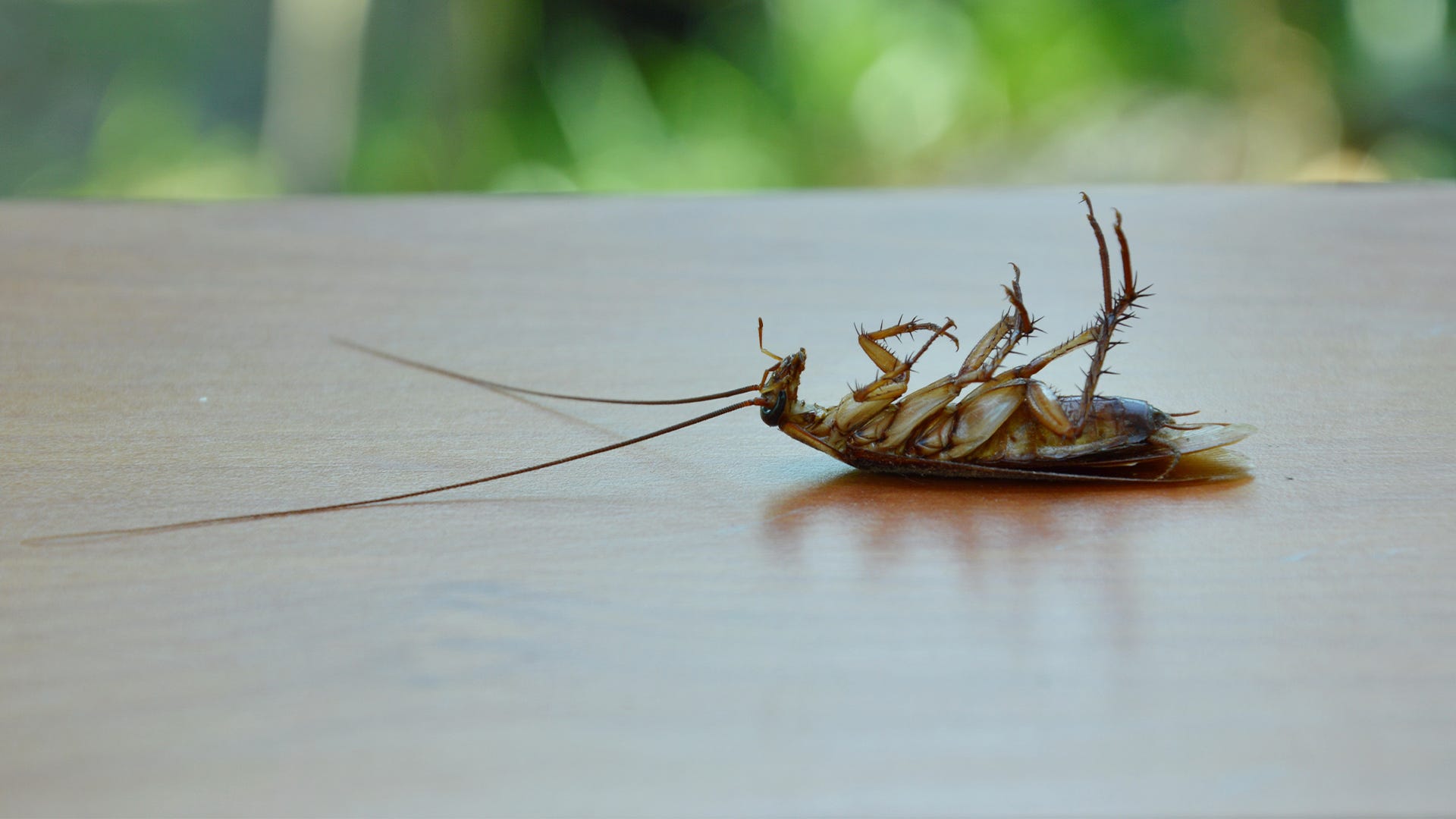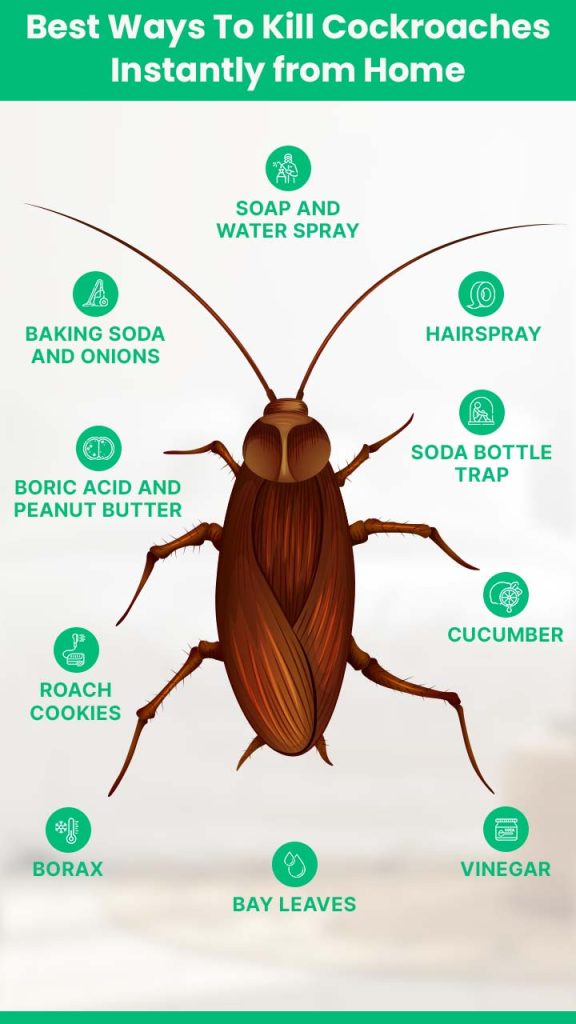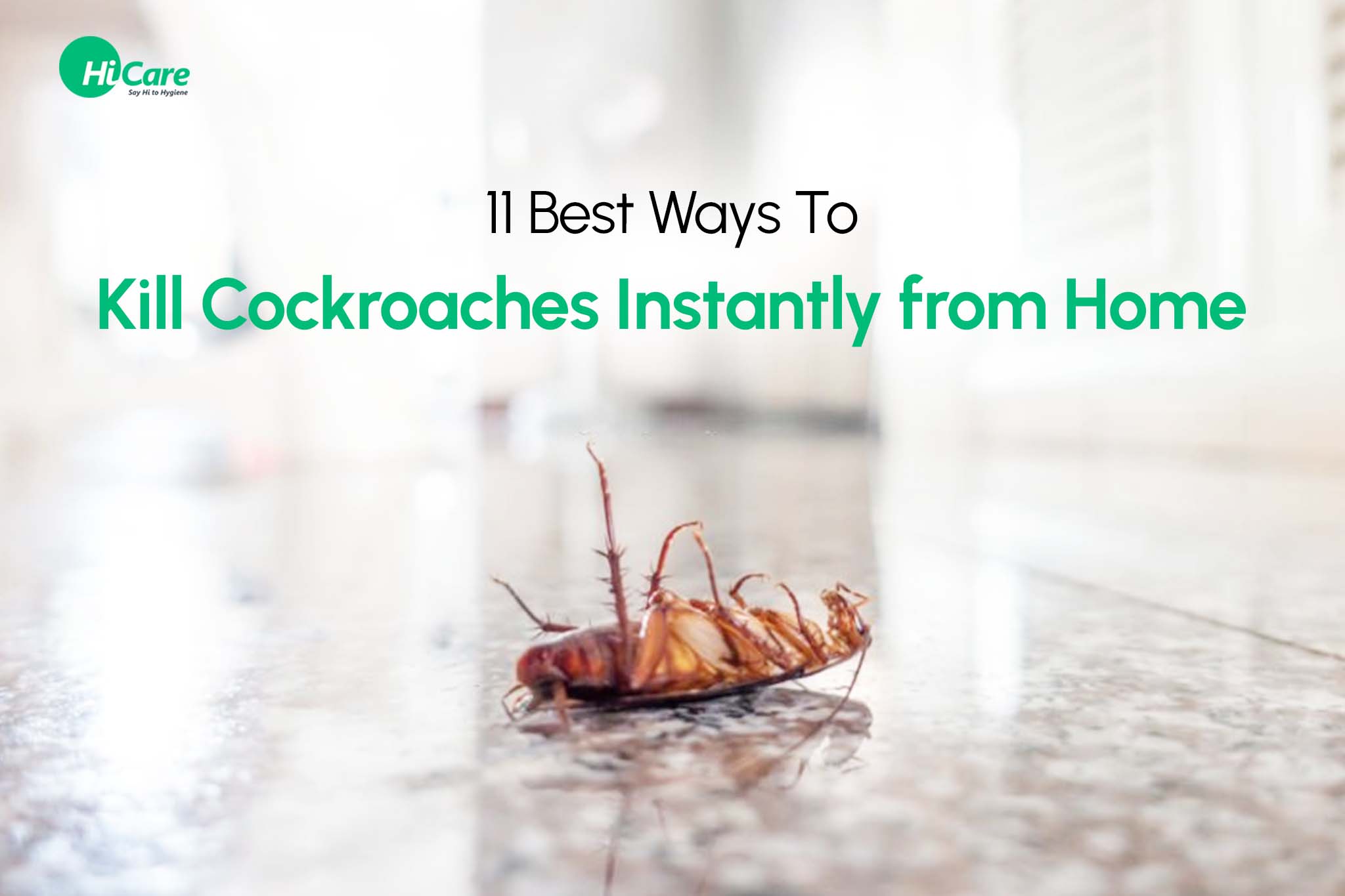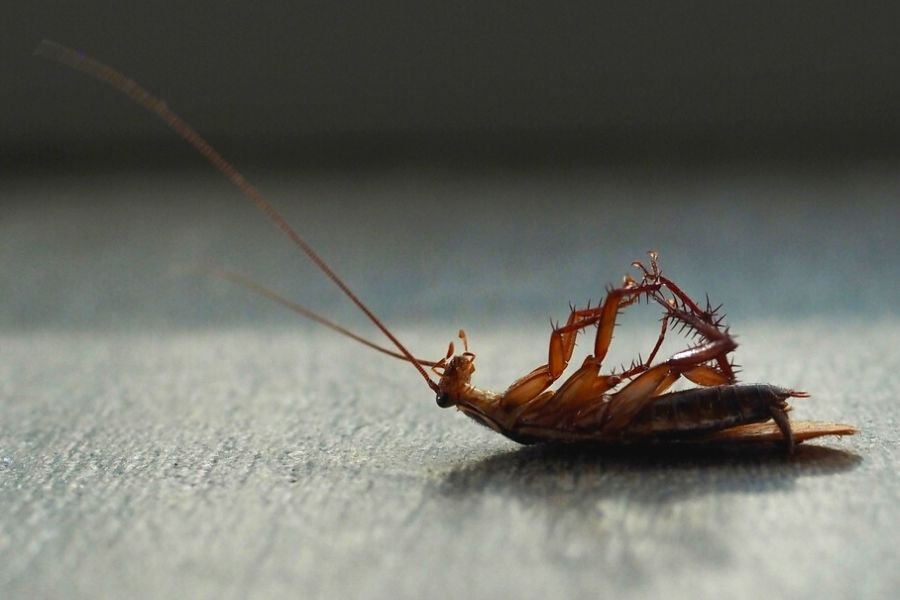Yes, you are supposed to kill cockroaches as they are potential carriers of diseases. They can contaminate food and spread harmful pathogens.
Controlling cockroach populations is critical for maintaining a clean and healthy living environment. These resilient pests are notorious for their survival skills and ability to reproduce rapidly, often leading to infestations. They carry a variety of pathogens that can cause diseases such as salmonella, dysentery, and gastroenteritis.
Their droppings, skin, and saliva can also trigger allergies and asthma in some individuals, making their presence a significant health concern. Eradicating cockroaches from homes and commercial spaces not only improves hygiene but also protects public health. Effective cockroach control strategies commonly include sanitation measures, traps, baits, and occasionally, chemical pesticides. Always proceed with caution and consider professional pest control services for severe infestations to ensure the safety and effectiveness of eradication methods.
Cockroach Encounters: An Urgent Need For Action?
Cockroaches spark fear and disgust in most of us. These unwelcome guests are not only a nuisance but also a sign to take immediate action. Ignoring a single cockroach can lead to a full-blown infestation. Understanding the urgency and steps to curb their invasion is crucial for a healthy living environment.
Rapid Reproduction Of Cockroaches
Cockroaches multiply rapidly, which is why quick action is necessary. A single pair of roaches can expand to thousands in just one year. Here’s a glimpse of their reproductive capabilities:
Table| Type of Cockroach | Eggs per Case | Cases per Year |
|---|---|---|
| German Cockroach | 30-40 | 4-6 |
| American Cockroach | 12-16 | 9-10 |
Potential Health Risks From Infestations
Cockroach infestations pose serious health risks. They carry bacteria such as E. coli and Salmonella. Touching surfaces they’ve come in contact with or inhaling particles from their droppings can lead to illnesses. Here are a few risks to be aware of:
Unordered list- Allergic reactions like asthma
- Food contamination leading to food poisoning
- Spread of diseases such as typhoid and cholera
Health Hazards: The Unseen Dangers
Dealing with cockroaches isn’t just a matter of discomfort; it’s a matter of health. These pests carry risks that often remain unseen until symptoms strike. Understanding the dangers that roaches pose is crucial in making an informed decision on whether you should eliminate these unwelcome guests.
Allergic Reactions To Cockroaches
Cockroaches can trigger allergies. Many people don’t know they can be allergic to these insects. Cockroach allergens come from their droppings, saliva, and shed skin. These substances can cause:
- Nasal congestion
- Skin rashes
- Asthma attacks in sensitive individuals
Regular cleaning reduces these allergens but killing cockroaches is key to long-term relief.
Diseases Transmitted By Cockroaches
Cockroaches are known carriers of numerous pathogens. They spread diseases that can affect humans profoundly. Here are some diseases linked to cockroaches:
| Disease | Transmission Method |
|---|---|
| Salmonellosis | Contaminating food with bacteria |
| E. coli Infections | Contact with contaminated surfaces |
| Cholera | Ingesting contaminated water or food |
Roach control is vital to prevent these illnesses. Spotting a single roach often means more are hidden. Therefore, taking action swiftly is important for the health of your home.
The Death Stench Phenomenon
A notorious reaction follows the crushing of cockroaches – the stench of death. A unique smell is released, which serves both as a warning and an invitation. Let’s explore the science behind this phenomenon and what it means for your battle against these resilient pests.
Pheromones Released By Dead Cockroaches
Cockroaches emit pheromones when they die. These chemical signals tell other roaches to steer clear of danger. The scent also acts as a dinner bell for others to consume the dead roach, recycling nutrients within their community.
- Aggregation pheromones can draw roaches together.
- Avoidance pheromones caution them about threats nearby.
- Death pheromones are a mix of both warnings and food signals.
Attracting Versus Deterring Roaches
The death scent’s dual nature means you need smart strategies. Squashing roaches may inadvertently attract more. Professional pest control methods can avoid this, using baits and traps that contain the situation.
- Use baits to attract and poison roaches without the stench.
- Seal entry points in your home to prevent roach access.
- Employ traps that contain dead roaches, minimizing the spread of pheromones.

Credit: www.terro.com
The Contamination Consequence
Dealing with cockroaches is more than an annoyance; it’s a matter of health and hygiene. These pests carry unwanted consequences, with contamination being a significant danger. Understanding the risks of simply squashing these invaders is crucial for a safe and effective extermination strategy.
Pathogen Spread By Squashing Cockroaches
Crushing a cockroach may seem like a quick fix, but it’s a mistake. Doing so can unleash harmful pathogens harbored within the insect. Cockroaches carry bacteria like E. coli and Salmonella. When smashed, these bacteria can spread.
Shoes and other items used to crush cockroaches become carriers of disease. They transfer these pathogens onto clean surfaces, potentially where food is prepared or eaten.
Surface Contamination Concerns
It is not just about visible matter; it’s about the invisible germs as well. Cockroaches traveling through sewage or waste can contaminate surfaces in your home. This poses a risk for foodborne illnesses.
- Kitchen counters
- Utensils
- Cutlery
Regular cleaning is good practice, but preventing these pests from entering is paramount. Sealing cracks and keeping food sealed and stored correctly are effective preventive measures.
Moral Considerations In Pest Control
Dealing with household pests, especially cockroaches, often leads to hard choices. Should we kill them, and is it ethical? Let’s dive into the moral landscape that surrounds pest control.
Is Killing Cockroaches A Sin?
Many wonder about the ethical implications of killing creatures like cockroaches. Some argue that all life deserves respect and compassion. Others assert that maintaining a healthy living environment may necessitate their control.
Buddhist And Hindu Perspectives
- Buddhism teaches ahimsa, or non-harm, suggesting that taking any life, even that of a cockroach, goes against its principles.
- Hinduism also places great value on all living beings. However, it also recognizes the need for health and cleanliness in one’s home.

Credit: hicare.in
Confronting The Cruelty
Discovering a cockroach scampering across your kitchen floor can provoke an immediate urge to squash it. These resilient pests often incite fear and disgust, potentially carrying diseases and allergens into our homes. But before you grab your shoe or insecticide, let’s pause to consider the implications of this action. Killing cockroaches may seem like a necessary response to an infestation, yet ethical considerations come into play. But what does this mean in terms of cruelty and are there more humane approaches available?
Peta’s Stance On Killing Cockroaches
PETA, a leading animal rights organization, emphasizes compassion for all creatures, cockroaches included. While acknowledging the health risks posed by these insects, PETA advocates for humane methods of cockroach control. They underline the importance of seeing these creatures as more than just pests, but as living beings capable of feeling pain. The debate centers around whether killing cockroaches is an act of cruelty or a necessary step to maintain hygiene and health in human habitats.
Exploring Humane Alternatives
Considering the ethical angle, numerous humane alternatives exist for dealing with cockroaches. Below are some methods that aim to either repel or remove these insects without causing them harm:
- Seal entry points to prevent cockroaches from entering your home.
- Keep your living space clean, especially free of food residues.
- Use essential oils like peppermint or citrus, which act as natural repellents.
- Employ traps that capture rather than kill cockroaches for later release.
- Consult with professional pest control services that offer humane solutions.
Each of these options represents an effort to address the cockroach problem without resorting to killing. Regardless of the method chosen, the goal remains the same: to live in clean, pest-free environments while minimizing harm to the creatures with whom we share our world.
Debunking Myths: The Truth About Killing Cockroaches
Introduction to Debunking Myths About Killing Cockroaches
Cockroaches stir up dread in many households. It’s often said that killing a cockroach can cause more harm than good. But let’s separate fact from fiction and tackle the most common myths about eliminating these persistent pests.
H3 heading for Misconceptions on spreading eggs
Misconceptions On Spreading Eggs
It’s a widespread belief that squashing cockroaches will spread their eggs and worsen an infestation. In truth, cockroach eggs are typically protected inside a hard case called an ootheca. It’s not easily destroyed by simple squashing.
- A cockroach’s ootheca is often left in hidden locations.
- Killing an adult cockroach will not release viable eggs.
H3 heading for Understanding attraction after death
Understanding Attraction After Death
There’s talk that dead cockroaches attract others, hinting at an almost-mystical call to arms. The truth is a dead cockroach can emit certain chemicals. These chemicals may signal danger or serve as a meal to others.
- Dead cockroaches release oleic acid, indicating death.
- This can warn living cockroaches to escape.
- However, it can also provide a food source, attracting other cockroaches.
Cockroach Control: Effective And Ethical Practices
Roaches can spread disease and trigger allergies. Thus, controlling them is important for a healthy home. But, is killing them the right way to go? Learn about ethical and effective ways to deal with these pests.
Prevention Through Home Maintenance
Keeping cockroaches away is better than having to deal with them. Home maintenance is key to prevention. Here’s how:
- Seal cracks and crevices where roaches can enter.
- Clean spills and crumbs immediately to avoid attracting pests.
- Keep food in sealed containers and never leave it out.
- Fix leaks promptly; roaches are drawn to moisture.
- Remove trash regularly and use bins with tight-fitting lids.
Choosing Ethical Extermination
To deal with a current infestation, choose ethical extermination methods. Consider the following:
- Use roach traps that contain bait and glue to catch them.
- Apply boric acid powder in hidden areas where roaches travel.
- Employ professionals who use eco-friendly methods.
Remember, harsh chemicals can harm more than just roaches. Opt for treatments that are safe for your family and the environment.
Case Studies: Real World Scenarios
Discover real-life accounts and success stories of battling cockroach infestations. Learn from everyday experiences and ethical pest control triumphs, providing valuable insights for a bug-free home.
Household experiences with infestationsHousehold Experiences With Infestations
We explore various household cockroach encounters and the measures taken to tackle them. These cases reveal the true impact of infestations and the importance of prompt actions.
- An Austin Family’s Battle: A family’s kitchen overrun by roaches learned that cleanliness and vigilant disposal of food waste minimized attraction.
- Apartment Complex Infestation: Tenants worked together with management to implement regular inspections, sealing entry points and employing traps.
Success Stories In Ethical Pest Control
Ethical pest control involves removing pests without causing unnecessary harm. Here are some success stories achieving that balance.
| Method | Result |
|---|---|
| Diatomaceous Earth: | A family eradicated roaches by sprinkling this natural, non-toxic powder around high-traffic areas. |
| Boric Acid Baits: | An eco-conscious individual successfully combined boric acid with food attractants, eliminating the colony without harsh chemicals. |

Credit: hicare.in
Guidelines For A Cockroach-free Home
Seeking a spotless and healthy home often involves dealing with unwanted guests, like cockroaches. These pesky intruders are not just a nuisance but pose various health risks. Devising effective cockroach elimination strategies is crucial for maintaining a safe living environment. Below are user-friendly tips and long-term solutions for cockroach prevention and control.
Practical Steps For Prevention
Prevention is always better than cure. Use these practical steps to keep cockroaches at bay:
- Regularly dispose of garbage and food scraps to eliminate food sources.
- Seal gaps in walls, around baseboards, and under doors to block entry points.
- Keep your kitchen clean and grease-free, paying special attention to countertops and appliances.
- Avoid leaving water out overnight, including pet dishes, as cockroaches need water to survive.
Long-term Strategies For Control
Establishing a cockroach-free environment may require a combination of methods:
- Invest in cockroach baits and traps that can reduce populations over time.
- Maintain a dry home; fix leaky faucets and minimize humidity to create a less attractive habitat.
- Use professional-grade insecticides if home remedies fail; follow the label instructions carefully.
- Contact a licensed pest control provider for a comprehensive approach and peace of mind.
Follow these guides diligently to achieve a cockroach-free living space. Remember, consistency is key in pest control.
Global Perspectives On Cockroach Management
Cockroaches are a common issue in homes worldwide. They threaten human health and well-being. This blog explores various global perspectives on managing these pests. Let’s delve into the cultural attitudes and international approaches to cockroach control.
Cultural Attitudes Towards Cockroaches
Different cultures view cockroaches in unique ways. Some see them as pests, while others may consider them a part of nature. Here’s an ordered list of cultural perspectives on cockroaches:
- In Asian cultures, cockroaches can be both a taboo and a source of traditional medicine.
- Latin American countries often treat cockroaches as severe household pests.
- In some parts of Africa, cockroaches are not viewed as critically as in the Western world.
- Western societies typically regard cockroaches as unwanted and harmful creatures.
International Approaches To Pest Control
Countries across the globe adopt various methods for pest control. Here are some bullet points highlighting different strategies:
- Chemical insecticides: Common in many regions, but environmental and health concerns arise.
- Biological control: Uses natural predators, increasingly popular due to eco-friendly aspects.
- Integrated Pest Management (IPM): Combines multiple techniques for sustainable cockroach control.
- Traditional methods: Some still use natural repellents like neem or boric acid mixtures.
Here’s a table comparing pest control methods used in different countries:
| Country | Method | Effectiveness |
|---|---|---|
| USA | Chemical sprays | High |
| India | Boric acid and bait | Moderate |
| Brazil | Natural repellents | Varies |
| Japan | IPM | High |
The Future Of Cockroach Management
As we look towards the future of cockroach management, we see a landscape transformed by innovative solutions and new ethical considerations. The question is no longer simply about whether to kill these resilient pests, but how to effectively control cockroach populations with minimal environmental impact and humane practices. Let’s dive into the advancements set to redefine our approach to these unwelcome houseguests.
Advancements In Pest Control Technology
The pest control industry is bustling with cutting-edge technologies designed to tackle cockroach infestations. These modern methods are not only more effective but also aim to reduce the use of harmful chemicals. Here’s a glimpse into the future:
- Automated Monitoring Systems: Sensors that detect and report cockroach activity, ensuring timely intervention.
- Biological Controls: Utilizing natural predators or pathogens as a way to control cockroach numbers.
- Targeted Insecticides: Developments in chemistry that focus on specific cockroach biology, minimizing impact on other species.
- Genetic Modifications: Potential use of genetically engineered cockroaches to disrupt reproduction and reduce populations.
Evolving Ethical Standards
Alongside technological progress, ethical standards in pest control are evolving. The industry recognizes the importance of balancing humane treatment with human health concerns. Here’s what to expect:
- Non-Lethal Methods: Traps that capture cockroaches for release in appropriate environments away from human dwellings.
- Regulated Chemical Use: Stricter guidelines on pesticide formulations and applications to protect non-target species and ecosystems.
- Public Education: Informing people on cockroach ecology to reduce unfounded fears and promote tolerance when possible.
- Professional Ethics: Exterminators adhering to a code of conduct that values both client well-being and cockroach welfare.
Frequently Asked Questions
Should I Kill A Cockroach If I See One?
Eliminating a cockroach when sighted helps prevent infestation and reduces health risks associated with these pests.
Why You Should Kill Cockroaches?
Cockroaches can spread diseases, worsen allergies, and rapidly infest homes, making it essential to eliminate them for health and safety.
What Happens If You Kill A Cockroach?
Killing a cockroach can release a pheromone that warns others of danger, potentially attracting more cockroaches.
Conclusion
Dealing with cockroaches sparks debate on necessity and methods. Their quick reproduction and health risks make control imperative. Remember, killing them can spread disease, so choose safe, effective solutions. Ensure cleanliness, use traps, or call professionals for humane, less risky extermination.
Protect your home and health responsibly.
Related posts:

I’m MD Tanvir, and I bring years of expertise gained from working closely with pest control companies to the forefront. My journey in the industry has inspired me to launch Bug Battler, a platform aimed at equipping people with the know-how to combat pests autonomously. Through Bug Battler, I aim to empower individuals with practical insights to tackle pest infestations effectively.

